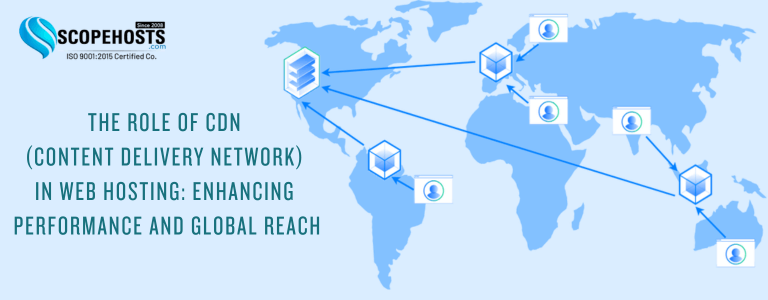To attract and keep your visitors engaged, it’s crucial that your website or mobile app loads quickly. Online consumers tend to abandon pages with slow load times. Incorporating a content delivery network (CDN) is essential for accelerating your web assets and enhancing user experience.
What is a content delivery network (CDN)?
A content delivery network (CDN) is a network of geographically dispersed servers designed to improve web performance. By storing duplicate copies of web content closer to users, CDNs ensure faster delivery and seamless delivery of dynamic content like live video feeds.
CDN servers, also known as edge servers, are strategically positioned on the “network edge,” closer to users compared to the host server. These servers efficiently store and cache web content, including HTML files, images, audio, video, and applications, obtained from the host server. By minimizing the physical distance between users and content, CDNs significantly improve website performance, reduce loading time, and help website publishers manage bandwidth consumption and costs effectively.

How does a CDN work?
A Content Delivery Network operates through a distributed system of servers that collaborate to deliver web content efficiently to users worldwide. When a user requests a webpage, the CDN redirects this request from the originating website’s server to a server in the CDN that is closest to the user. This proximity reduces the time it takes for the content to travel.
The edge server checks if it has a cached version of the requested content. If it does, the CDN delivers this cached content to the user. If not, the edge server requests the content from either another closer edge server or the origin server. Once the edge server retrieves the content, it caches it for future requests, further speeding up content delivery. This caching and delivering process from a geographically closer server accelerates page load times, reduces bandwidth consumption, and lowers the server load on the origin site, enhancing the overall user experience.
Enhancing Website Performance with a CDN
When a web hosting company integrates a Content Delivery Network, it unlocks a potent tool for elevating website performance. By strategically placing cached content across a vast network of servers worldwide, a CDN significantly shortens the data travel distance to users. This reduction in distance is crucial for accelerating page load speeds, especially for websites with high visitor traffic or large multimedia files. Faster loading times not only improve the overall user experience but also positively contribute to a website’s search engine ranking. Such performance enhancements are vital in today’s digital landscape where user expectations and search algorithms continuously evolve. The role of a CDN extends beyond speed optimization; it ensures consistent user experience, irrespective of traffic surges or geographic disparities, making it indispensable for web hosting companies focused on delivering top-tier website performance.

Improving Website Security and Downtime with a CDN
A CDN’s architecture enhances website security by providing an effective shield against a variety of cyber attacks, including Distributed Denial of Service (DDoS) assaults. Through features such as DDoS mitigation, web application firewall (WAF), and secure token authentication, CDNs play a pivotal role in defending websites from malicious threats and vulnerabilities. This added layer of security not only helps in preserving the integrity of the hosted sites but also in maintaining the trust of end-users. Furthermore, the redundancy built into a CDN’s distributed network is key to reducing website downtime. In the event of a server malfunction or excessive traffic, the CDN can reroute requests to the next available server, ensuring that the website remains accessible to users without interruption. This dynamic rerouting capability underscores the importance of a CDN in maintaining continuous website operation, contributing significantly to a seamless user experience. By fortifying website security and minimizing downtime, a CDN offers a robust solution for web hosting companies to uphold high standards of online presence for their clients.
Expanding Your Global Reach Through a CDN
Leveraging a CDN is pivotal for web hosting companies aiming to serve an international audience effectively. This advanced technology facilitates content distribution through a sprawling network of servers, strategically located worldwide. Such an arrangement ensures that your hosted websites can maintain high performance and availability, even as they deliver content to users across different continents. This global spread of content drastically reduces latency by connecting users to the server closest to them, thus enhancing the browsing experience for a diverse audience. Consequently, businesses leveraging your hosting services are empowered to penetrate new markets with ease, confident in the knowledge that their online platforms will remain both accessible and responsive. A CDN’s ability to handle vast amounts of traffic from various locations simultaneously further solidifies its role as a crucial instrument for global digital expansion. By breaking down geographical barriers and optimizing content delivery, a CDN equips web hosting companies with the capability to support their clients’ growth ambitions on a worldwide scale.
Conclusion
As users’ digital expectations grow higher every year, incorporating a Content Delivery Network has become less of an optional strategy and more of a necessity for businesses hoping to remain relevant in the digital landscape.






